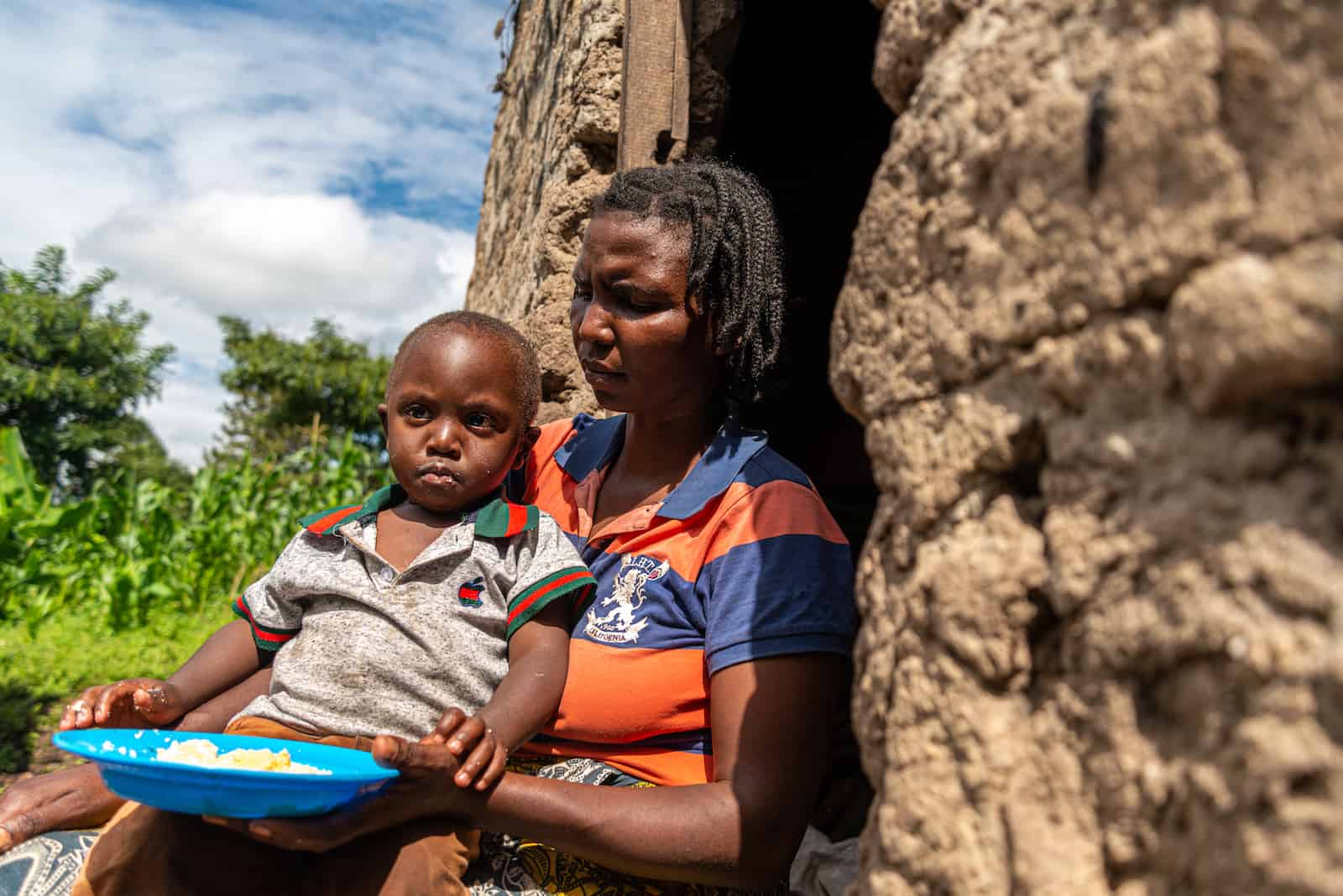
One night, Mary Mushi returned home late to the sight of her children and their father seated next to a fire. Her heart sank at the look on their faces. It was one she had seen all too often.
“When I saw them, I knew they were hungry,” says Mary.
“My husband did not make money that day. When I asked if they had eaten, my husband said they had drunk hot water. We did not have any other food in the house, so I took the bucket of tomatoes I’d brought home, cut them into pieces and that was our supper.”
Like her husband Michael, Mary did not have the chance to attend secondary school. Instead of going to school, she helped her parents on their farm in Tanzania until she got married. With only primary school education, the jobs she and her husband were eligible for did not pay well.
Both of them worked on other people’s plantations as day laborers, and May farmed their small piece of land. But it would take at least 60 days before the crops were ready for harvest. While they waited, the couple had to choose which meals to skip.
The sight of her four children withering away from hunger weighed deeply on Mary’s heart. To make sure that her children ate, she would sometimes beg for food from her neighbors.
“I remember when I was nursing my third child, I could not produce milk,” says Mary. “So I drank hot water to see if I could produce even a little.”
Despite all their efforts, Mary and Michael always fell short. The money they earned was never enough, and their harvest kept them fed for just a few months.
Life changed when she joined Compassion’s Survival Program.
She and her youngest child Apolinari were both registered into the program, which provides pre and postnatal care to mothers and babies.
“After just a few visits from staff from the center, I realized what I had done wrong when I was nursing my other children,” says Mary. “With my other children, I did not pay attention to how I breastfed them. I didn’t understand that the food I ate could affect them.”
Besides educating Mary on how to nurture her son, Compassion’s church partner gave her food, clothes and medical insurance. With the center behind her, she watched her son grow into a healthy and energetic boy.
But then the COVID-19 pandemic happened.
Two months before Apolinari’s second birthday, the first COVID-19 case was reported in Tanzania. Just a few weeks later, Mary and Michael felt the pinch of the pandemic in their pockets.
“I went from making $3.00 in a day to making $1.30. Even that amount was not guaranteed,” says Mary.
Suddenly, they were facing the same desperate situation they used to live in. Again, Compassion’s church partner stepped in to help. During a home visit, Mary informed implementer Rehema Muriro of the challenges they were facing. Rehema and the center director come up with a creative solution: teaching the mothers how to make meals out of plants that they could easily find around them.
“We decided to teach parents how to use the foods that were around them to make balanced meals,” says Rehema. “We taught each one of them individually during home visits.”
It was an eye-opening visit for Mary.
“When she visited me, I showed her our farm. I had planted pumpkins and cassavas. I knew I could eat the leaves of both plants, but I did not know how to process cassava leaves. She taught me how.”
“I am glad I will not see my children starving again,” says Mary.
Families like Mary’s depend upon every cent. By simply adding a food that they can find easily into their meals, Mary can use the small savings for other expenses. Today, the nights of Mary coming home to a starving family are a thing of the past. She is still haunted by the memories but is looking forward to a different future.
Children are hungry right now because of this pandemic.
So many of you have been giving generously. Thank you! There are children who have enough to eat today because of you! If you haven’t given and are able, please consider donating to families who are very much in need right now. May God bless you.
